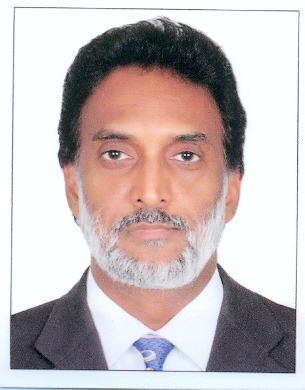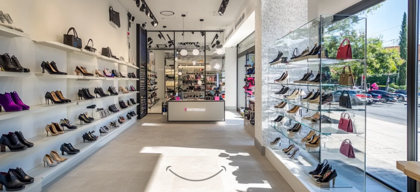Weaving innovation into the fabric of the marketplace for garments
SME Inspirations
408 week ago — 8 min read
Some markets can be very price sensitive when it comes to the type of products. The garment industry is one such industry. A small percentage reduction in the selling price could mean the difference between making a sale or just seeing footfall. ThreadSol Pvt. Ltd., founded by Manasij Ganguli, seeks to use technology and software to bring an advantage to brands and manufacturers by promising to reduce production cost by 10%.
ThreadSol works with renowned brands like Zara, Adidas and Nike and some large manufacturing groups all over the world. Their aim is to reduce the price of goods on the shelf by reducing production cost thereby benefitting the entire ecosystem of the garments marketplace.
In conversation with GlobalLinker (GL) Manasij Ganguli (MG) speaks about the company and its journey. Watch this video to learn more about their story.
GL: Tell us about your business.
MG: We started working three and a half years back. We analysed the entire sector and realised that there is a huge opportunity for garment technology companies to prosper and do well. It’s a sector which is one trillion dollars in size. However, there are not too many companies in the garment technology space. We realised that we could build there. That is how ThreadSol came into being. Our approach is to work with manufacturers and brands all over the world who produce garments and lower their manufacturing cost with our technology.
Some of the recognisable brands we work with are Zara, Adidas, Nike, PVH, Puma and a 100-150 other brands. We also work with 100 plus manufacturers all over the globe. They are located everywhere - India, Pakistan, Bangladesh, Vietnam, China, Turkey, Egypt, Nicaragua and Thailand. There are a lot of manufacturers who produce extremely good clothes and are billion dollars in size. They may not be as famous as the big brands but there is one called MAS Holdings which is a huge company in Sri Lanka which makes products exclusively for Victoria’s Secret and Nike. They have 40 factories. We also work with another company that works in China and South-East Asia that makes products for Ralph Lauren, Adidas and other companies.
GL: What are the challenges you have faced in establishing your business?
MG: Every startup has the same problem. The problem is that there is not enough belief on the table. First of all, you have to believe yourself that this is a good idea so you can quit your job and give up a lovely lifestyle and get into something as difficult as this. The second problem is that you have to get customers to believe that yours is a good product and that they could part with some of their hard earned cash on it. Third, you have to convince people who are good and seeking jobs to come and work with you. You need to get talent to work with you. Then you have to go and convince investors so they would invest money in you. Finally, you have to convince some partners and associates who could be strategic to your business.
So there is a lot of convincing and belief generation that happens. Every startup grapples with that. The problem that actually magnifies the whole thing is the economics of it. While we are generating belief if you run out of cash at any stage you’re done. it’s important that all these issues are taken into account and all startups have these issues. We’ve had our share of problems. People take a long time to accept new innovations and people take a lot of time to fund companies as well. There came a time when we had only 28 days of money left in our bank. We survived that.
Now we are doing well. We are in 15 countries and we have 120 people. We are headquartered in Singapore. We’re working with hundreds of manufacturers in the world. Every day we are planning for 2.5 million garments somewhere in the world. If you can weather the storms, you’ll have a story to tell and that’s where we are right now.
GL: What is the USP of your business?
MG: It’s very simple. You love clothes, you buy them off the shelf and you want them cheap. So the brands have to make the fabric and the garments cheaper. This means the people actually manufacturing it in the factories have to make it cheaper. Someone has to make some technology someday that ensures that they can make it cheaper so the consumer can buy products cheaper. That’s it. It’s just as simple as that. We have a technology that ensures brands and manufacturers can lower their costs and provide the same garment on the same shelf, in the same mall, for a cheaper price tomorrow.
GL: What are some of the milestones of your business?
MG: Every step in the ThreadSol journey has been a milestone. The first sale after so much struggle, the first international sale in Sri Lanka, the first million in revenue. The list is quite long. And the external appreciation has come at every step.
- Microsoft Bitzspark in 2012
- Featured on NxtBigWhat Unplugged
- Grace Hopper’s Women Entrepreneur of the Year
- SmartCEO50
- Hot100 by IBM
- Venture Engine, Sri Lanka
- Business Today’s Coolest Startup of the year
- TiE Spirit of Manufacturing award
GL: What role do you feel GlobalLinker plays in connecting & assisting SMEs?
MG: GlobalLinker is a great platform for promoting upcoming ventures. It increases awareness and brings people together.
Any startup has to work with other concerned stakeholders, service providers and departments. If there could be a platform where linking up to other people becomes easier, it saves a lot of effort and you can save cost. Any platform that does that can have a huge impact on small and medium enterprises and startups specifically. I’m very happy to see that happening through GlobalLinker.
GL: What is your big business dream?
MG: At ThreadSol, we are currently chasing a target of $5 Million this year. The goal is to achieve $100 million target in the next 3-4 years. We also want to be the de-facto garment technology solution provider in the world.
GL: What is your message to aspiring entrepreneurs?
MG: My only advice to anyone starting out is to know that this is a business. People coming together to form a cool startup and sitting together and working on beanbags comes second. You have to understand that for business owners and investors the matrices and numbers for a business are the most important things. If you don’t understand that, as a founder and entrepreneur, you will struggle very quickly. It is an economic endeavour and business primarily. You have to know what cash flow is, what the rules for taxation are, EBITDA (Earnings before interest, tax, depreciation and amortisation), how gross and net profit is calculated. You should know if you are meeting an investor what your IRR (Internal rate of return) is and what their LPs (Limited Partnerships) are. If you don’t know what these things are, you will struggle.
Disclaimer: This article is based solely on the inputs shared by the featured member. GlobalLinker does not necessarily endorse the views, opinions & facts stated by the member.
Posted by
GlobalLinker StaffWe are a team of experienced industry professionals committed to sharing our knowledge and skills with small & medium enterprises.
Network with SMEs mentioned in this article
View GlobalLinker 's profile
Most read this week














Comments (2)
Please login or Register to join the discussion